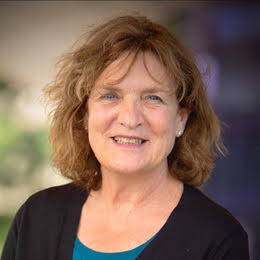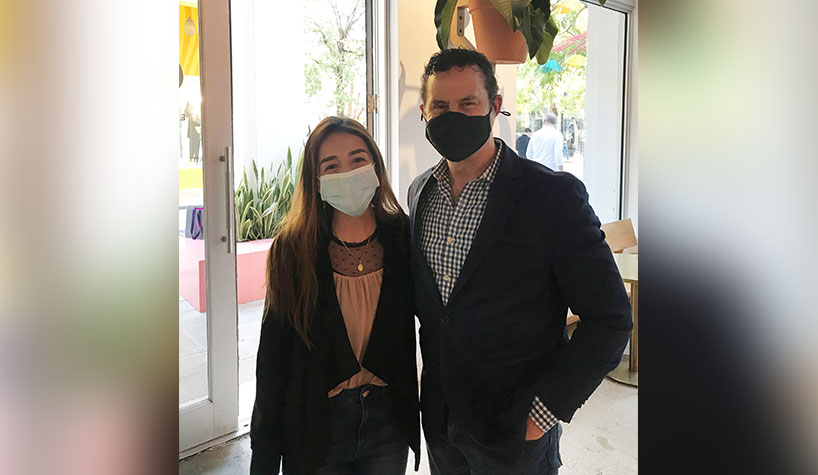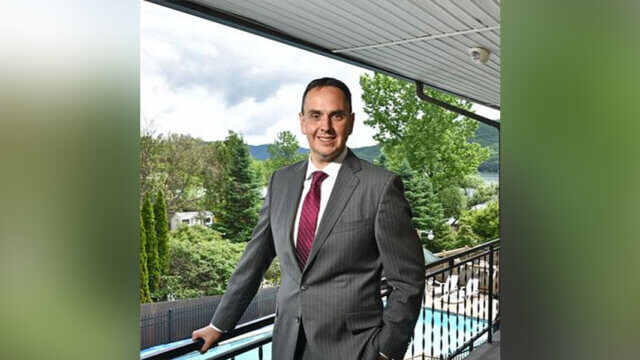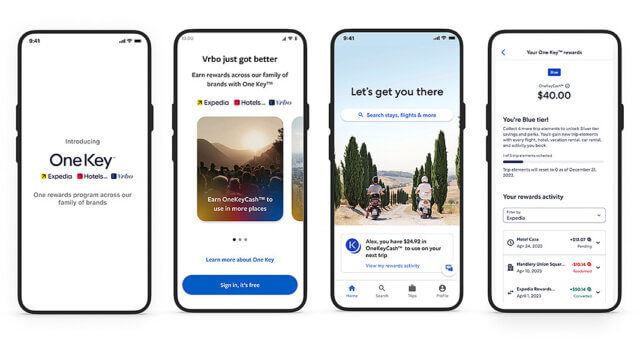Imagine you’re a college student or recent graduate attending one of the many networking events held each year in the hospitality industry. Everywhere you look, there are high-ranking executives from any number of companies engaged in conversations. It’s a wonderful opportunity to introduce yourself, and perhaps, from that interaction, land that internship or first job. But, do you have the confidence and skills to approach an executive or leader in the industry and promote your “personal brand?”
The Leland C. and Mary M. Pillsbury Institute for Hospitality Entrepreneurship at Cornell University’s School of Hotel Administration has created an experiential networking program to expand students’ life and networking skills to add value and grow their knowledge, interpersonal people skills and experience to help them succeed in business and life. The program is overseen by the institute’s academic codirectors and professors—Linda Canina, Georges C. and Marian St. Laurent professor in applied business management and professor of finance; and David Sherwyn, John and Melissa Ceriale professor of hospitality human resources.

“We host a lot of events with opportunities for students to engage one-on-one with industry professionals,” said Canina. “One of the things that I’ve observed over time is that the students tend to congregate together rather than introduce themselves to others. I try to introduce them to others and reinforce that idea.
“I also notice that some of the students engage with industry people while others don’t. I remind myself the students are quite young and inexperienced about meeting industry professionals. They graduated from high school and then they come to the university as freshmen and sophomores. So, they have not been exposed to these types of events previously and as a result are not accustomed to networking.”
The idea of the program was introduced at a Pillsbury Institute board meeting in January 2020, and it was devised last summer by a committee chaired by Stacy Silver, president, Silver Hospitality, along with Jill Hellman, founder, The Strategy Lab; Bob DeVries, CEO, hospitality & leisure practices, Spencer Stuart; Chad Crandell, managing director/CEO, CHMWarnick; and Warren Leeds, president, Dartcor Food Services.
Eighty students participated in the program, which started last fall remotely because visitors were not allowed on the Cornell campus.
The committee created five modules, each with their own goals, taught by an industry expert:
- Art of Networking: Students should be able to understand what networking is, identify and explain different networking styles and techniques, discuss and analyze best practices, be aware of their natural style and ways they can enhance their style or leverage their natural strength and adopt characteristics of different styles. It is taught by Randi Braun, CEO, Something Major Coaching.
- Personal Branding: Students should be able to identify their core strengths and understand why these matter, hone in on what they love and want to do, differentiate themselves by tying their strengths to results and use persuasive communication techniques to start laying the foundation for creating a powerful and compelling personal positioning statement. It is taught by Nancy Medoff, founder/principal, Athena Wise.
- Activating Your Plan: Students should be able to build specific action items, have more confidence and insights into how to reach out and network on various platforms, gauge the right timing for follow-up and understand ways to execute their plan. It is taught by Heather Jacobs, chief human resources officer, Delaware North.
- Mastering Basics of Video Communication: Students should be able to use best practices while using technology (video, audio, internet connection), including ensuring they have a proper background, are prepared for discussion and present themselves properly to build relationships regardless of the medium. It is taught by Silver and DeVries.
- Expanding Networks/Ecosystems: Students should be able to understand who their current network connections are, how to utilize those connections to build and strengthen relationships as well as expand their networks and share them with others. It is taught by Deena Baikowitz, chief networking officer, Fireball Global.
“In addition to [the lectures], each student is placed in a small group with five to six other students, and each group has a mentor,” said Canina. “These mentors will be people from Virgin Hotels, Marriott, IHG, Thayer Ventures and others. Stacy [Silver] and her group organized the mentors, who volunteer their time.”
Students are given assignments from the industry professionals teaching the lectures, and they take time to practice with their mentors. The mentors will also give students assignments to practice with industry professionals.
“Through all this practice, the students have a chance to hone in on interpersonal skills and work to the point where they can walk into a reception, introduce themselves in an interesting way that will gain the group’s attention and also interact and learn from others,” noted Canina.
“In the course of my life and career, I have been the beneficiary of several mentors, so having the opportunity to provide that for students through the Cornell networking program has been an honor,” said Allen Rolleri, mentor and Hotel Business’ VP, business development and operations. “Discussing networking techniques with my group was extremely gratifying, as was getting the students to understand their differences about what makes them special and memorable. I certainly learned quite a bit from the students as well.”
The first iteration of the program, which ends in May, was offered only to students of the School of Hotel Administration. Canina said that next semester in the fall, it will be open to students at Cornell’s SC Johnson College of Business.
Canina hopes to include students from the Samuel Curtis Johnson Graduate School of Management, as well as the Charles H. Dyson School of Applied Economics and Management. “Hopefully, this will grow to where we will be able to offer it to students all over Cornell University,” she added.
As the committee begins preparing for the return of the program in the fall, it will be looking to add new mentors and experts for next year.




